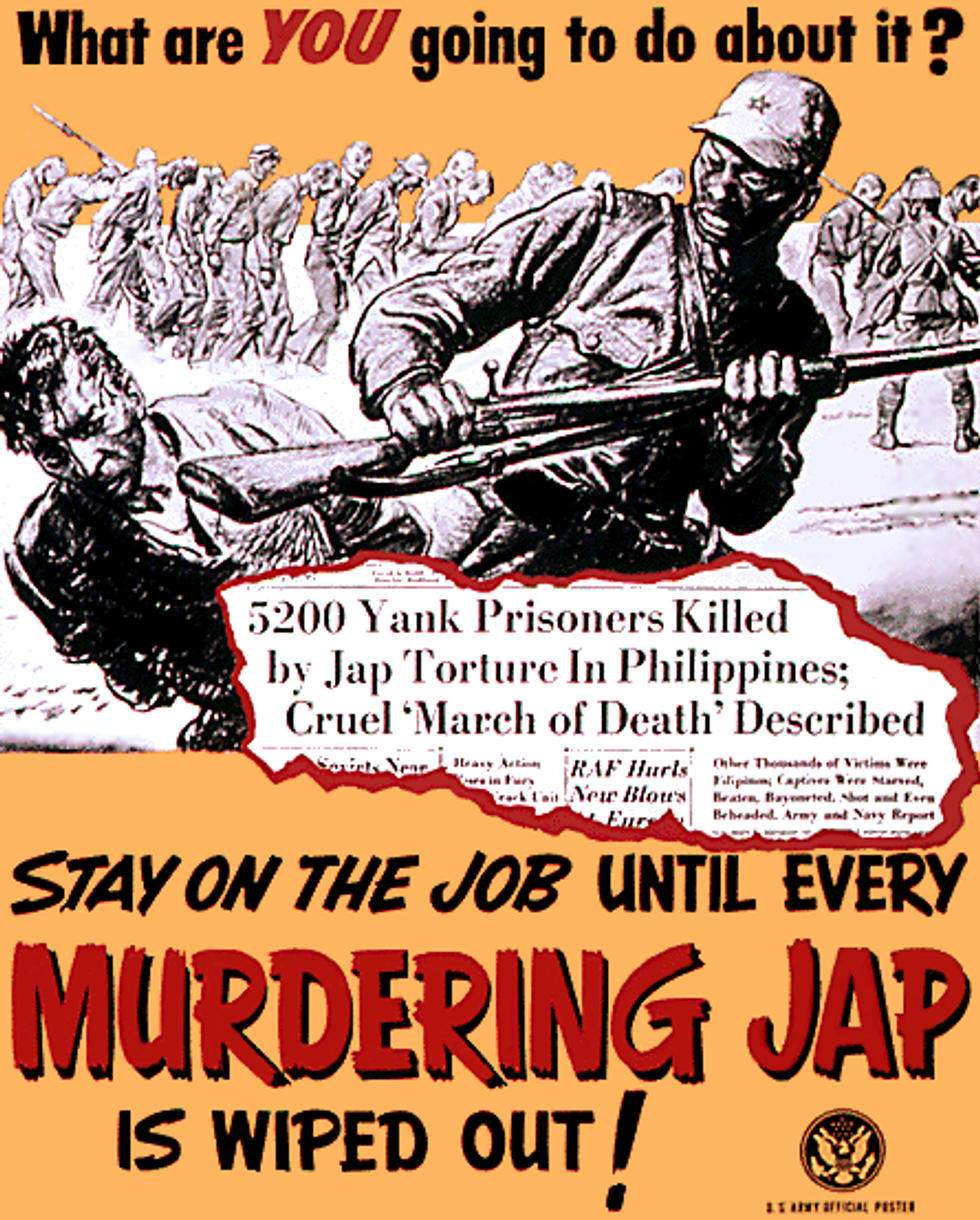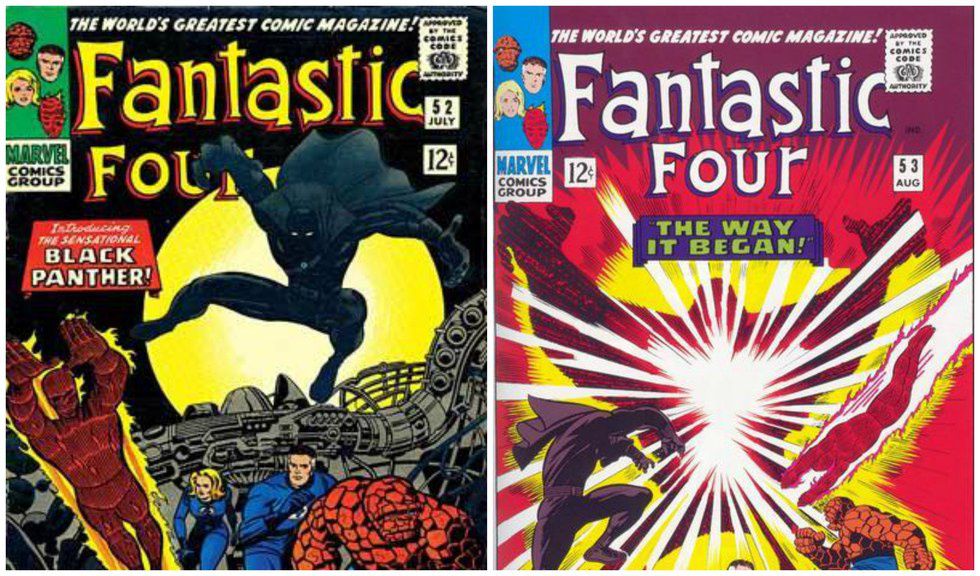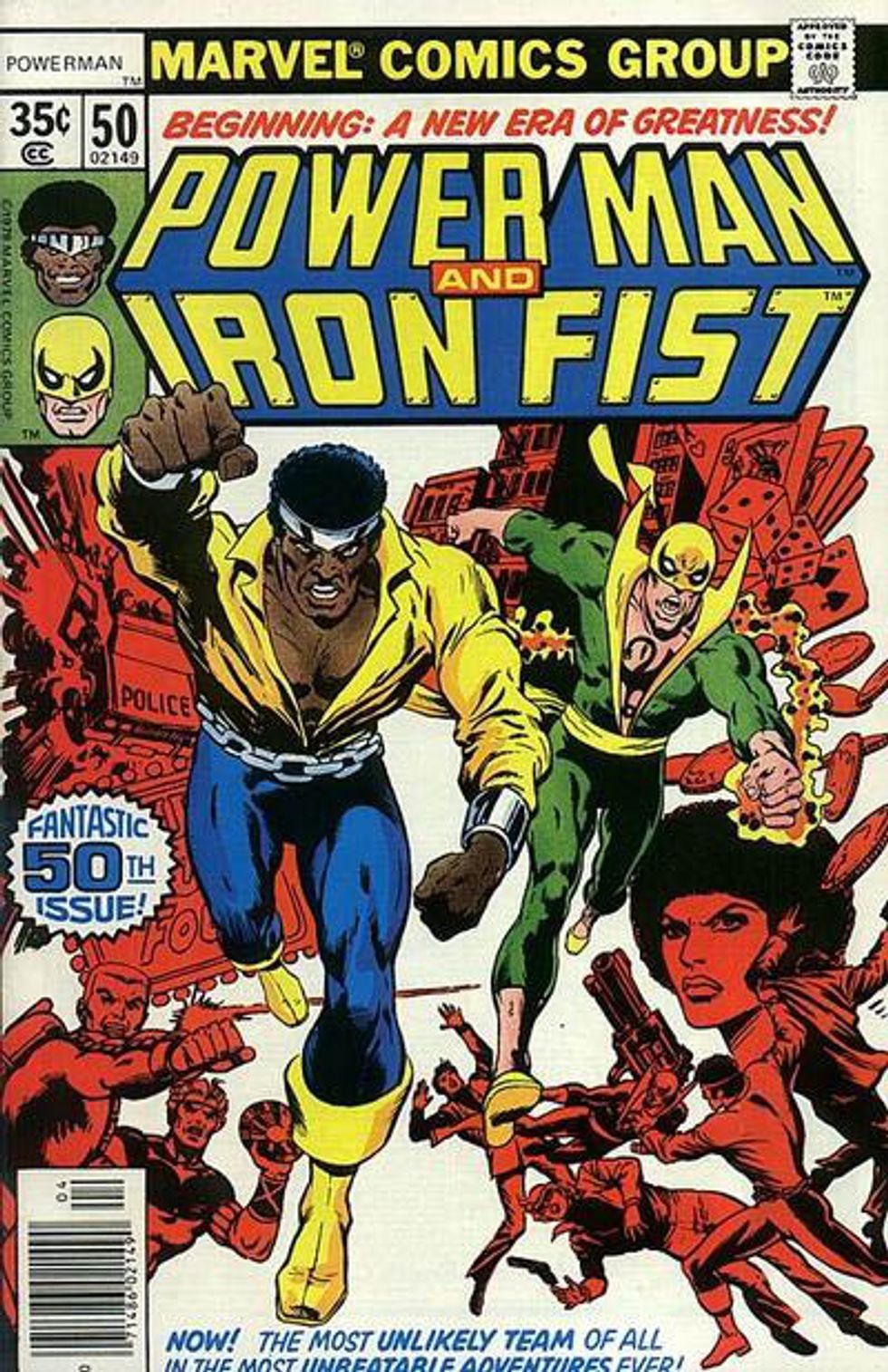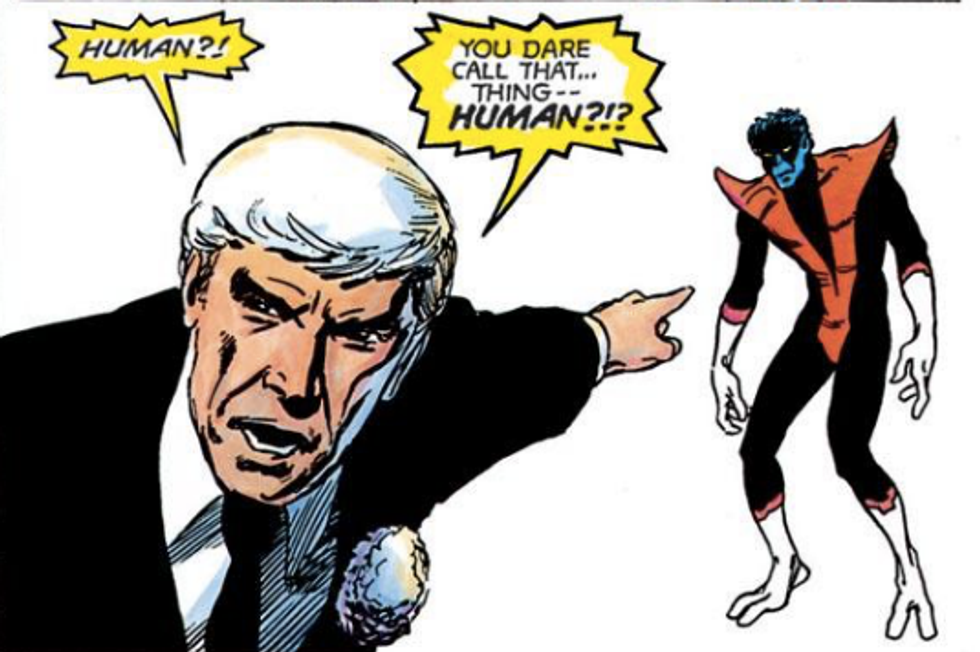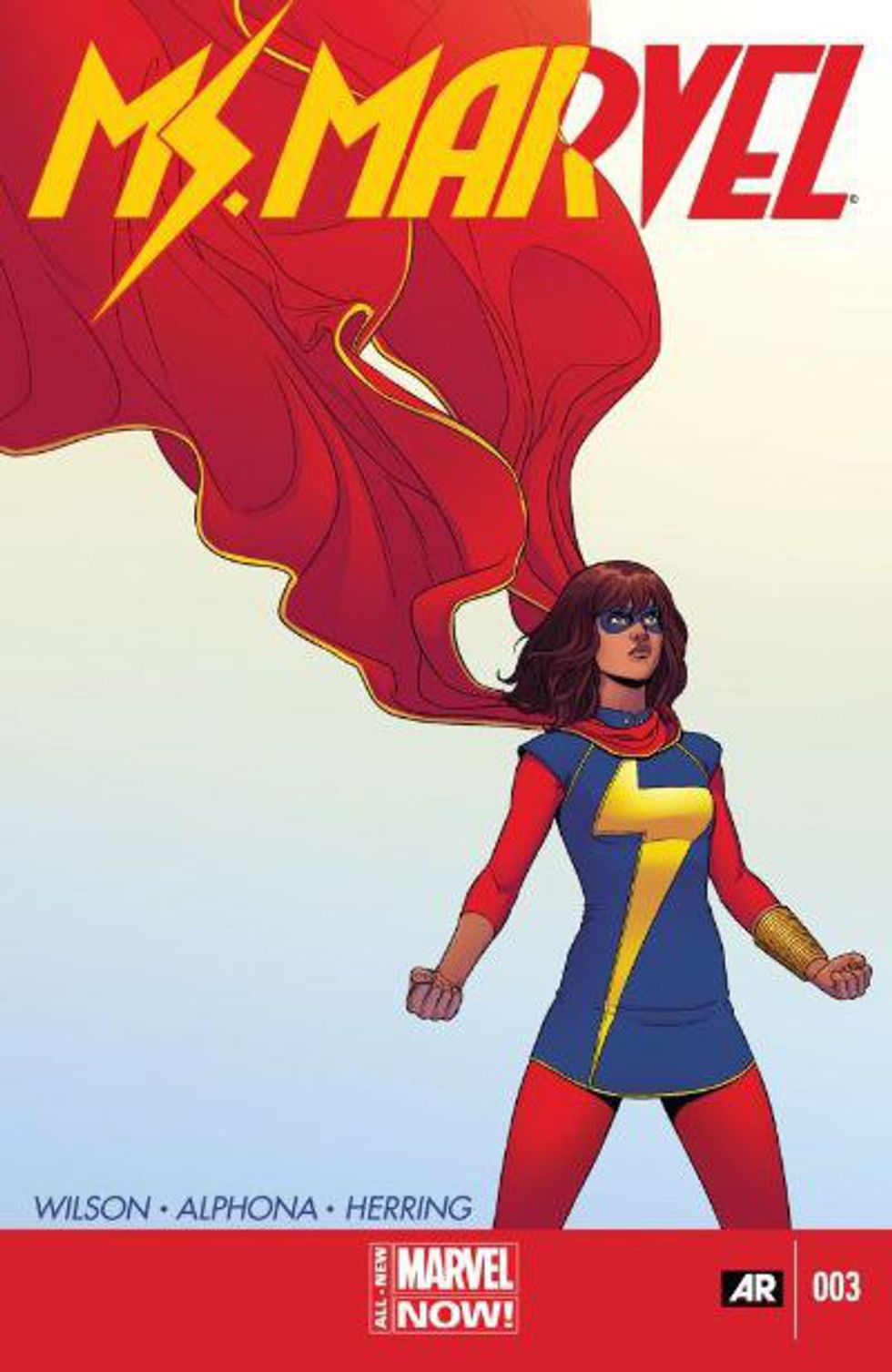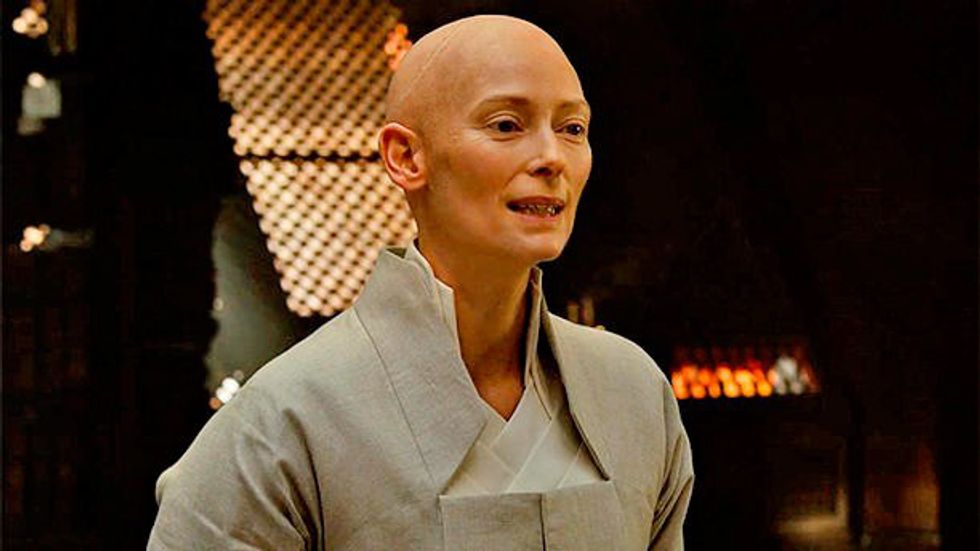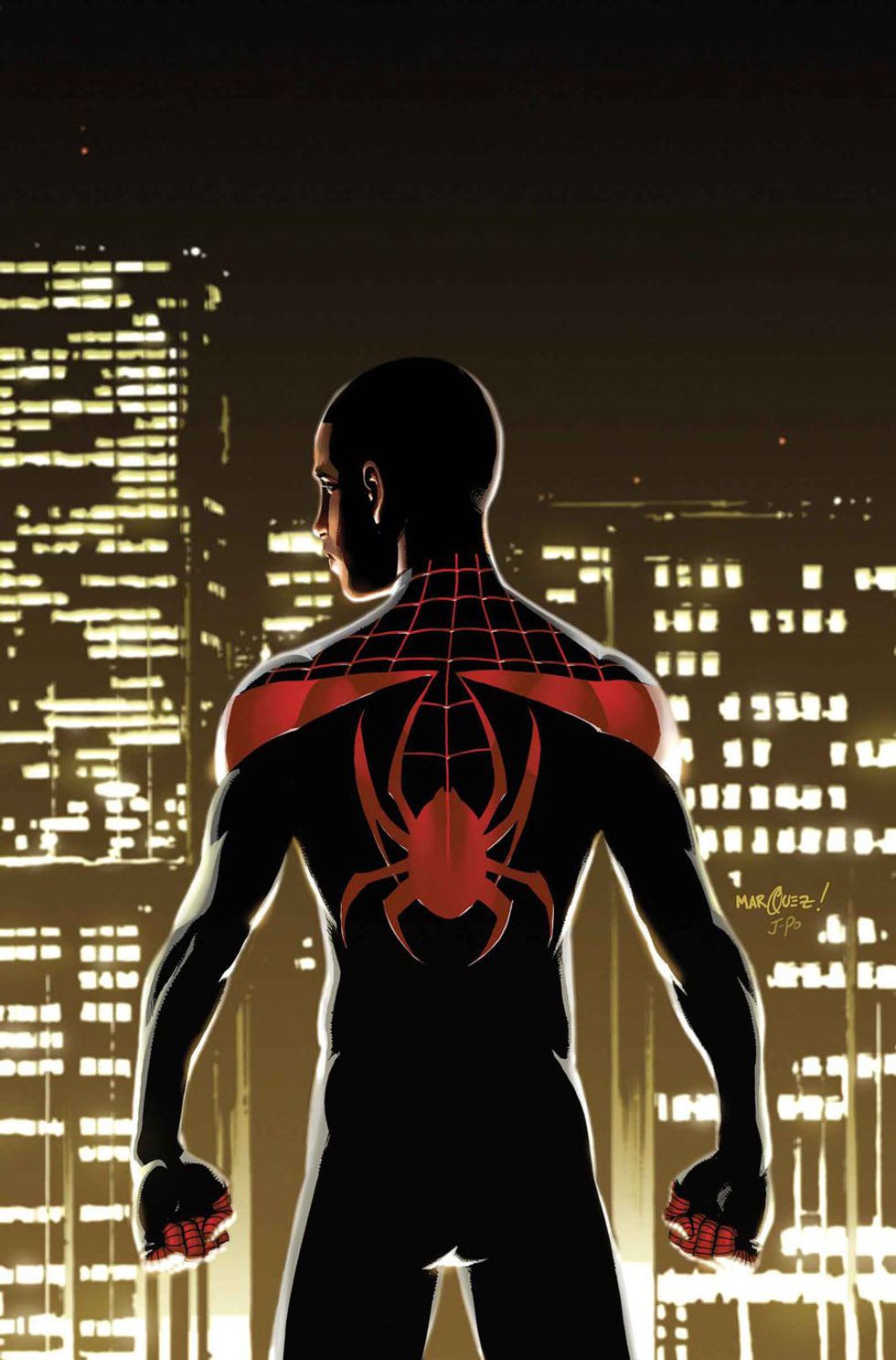I have been an avid reader of comics for sometime. In fact, my hobby of reading comics quickly turned into a deeper appreciation for the subtle messages and impact within comics. They cover so much more than good guys beating bad guys, saving the distressed, and secret identities. This medium, often viewed as simple and juvenile, offers deep philosophical messages on life and identity, choice, pride, substance abuse, equality, and patriotism. Since 1938's Action Comics #1, the American Comic Book industry has produced a level of duality between both the fictional panels and the pantheon of American values and ideals. This series will dive into the 'between,' and tell the story and meaning of those values and how they manifest into the pages and panels of comics. Today, we turn to the still relevant issue of race and racism, and make no mistake, just like old Looney Tune and Merrie Melodies cartoons, comics have a deep history of racism.
Modern Comics, and some of the most famous characters, formed between the late 1930s and mid 1950s in what is known as the "Golden Age." Jerry Siegel's and Joe Shuster's 'Superman' speared the success of this age, though, we was quickly followed by the likes of Captain American, Captain Marvel, Wonder Women, Batman, and Flash. During their first wave of success, comics became deeply involved in propaganda like themes. Superman, fighting for truth, justice, and the American way, and Captain America are perhaps the biggest contributors to images like the above cover from Captain American #13. They mirror general anti-Japanese propaganda used by the United States during World War Two.
The intention of both comic covers and these government issued propaganda posters and ads are shared, to dehumanize the Japanese and make them appear as the 'villains' needed to be stopped. Notice the fang like teeth and claw like digits of the figure on the Captain America cover. Needless to say patriotism and racist depictions of the Japanese, Italians, and Germans go hand in hand. Though these images leave the panels of American comics as World War Two closed, America faced a more homebound issue of race. This is, of course, the Civil Rights movement.
Seeming to respond to the outcry for equality in the United States, and breaking the ideas of 'Separate but equal," Marvel comics introduced the Black Panther, the first mainstream Black Comic hero, hailing from the fiction country of Wakanda. Embodying the spirit of a warrior and African cultural uniqueness, T'Challa has been well received as character, playing a major role in some of Marvels biggest story lines. Soon following Black Panther, characters such as Falcon and Luke Cage began to represent themselves and the African-American community in solo books. The Likes of Falcon and Luke Cage raised in popularity, and even became equals with previously established characters like Captain America. Falcon,Sam Wilson, never served as a side kick for Steve Rodgers, instead he acted as his own hero and equal to Rodgers. Likewise, Luke Cage, formerly Power Man, also teamed with another hero, Asian-American Iron Fist.
These new team-ups of Falcon and Captain America along with Luke Cage and Iron Fist promoted core ideas of desegregation, racial harmony, and cooperation. These books challenged the ideas of the 'separate but equal' notions previously established by the American court systems, and aligned greatly with the civil right movement. However, comics did not simply promote the seamless cooperation of races, they touched on the darker, surreal nature of racism as well, most notably, with the X-men
The X-men, famously characterizing the division between civil rights movement and its leaders, opened the door for discussions on just how drastic segregation and racism could become. Though recent discussions about the comparison of Professor X and Magneto to Martin Luther King and Malcolm X has come under question in recent scholarly works, the overall theme of division between human and mutant society draws many comparisons to the division of white and black communities. In famous pieces, such as God Loves, Man Kills and Days of Future Past, The X-men and come under fire for being something they have no control over, and are treated as less than human. This leads to mob violence and being forced into interment camps. These event parallel the era of Jim Crow laws and the forcing of African Americans int poor neighborhoods away from traditionally white sections of growing cities like Chicago and New York. The films adaptations of the X-Men also lay on a heavy theme of racism, reminding us as viewers and fans that the issues plaguing the Mutants in the pages still existence to some extent in our time.
This, more of less, brings us to the new age of comic books. If you have been following comics recently, undoubtedly you have noticed a trend of change in traditional and established characters. Sam Wilson, Falcon, has become the new Captain America, Mile Morales, a bi-racial Black/Hispanic, is the new Ultimate Spider-Man, Robbie Reyes, a Mexican-American, is the new Ghost Rider, and Kamala Khan is not only the new Ms. Marvel, but she is Marvels first headlining Muslim character. These new interpretations of heroes are paving the way to promote multi-racial understanding and coexistence. Though these noble attempts to show the reality of ethnic populations in the United States, and their positive role in our society, there is still a sense of 'whitewashing' all things comic books. For that, we look to the Marvel Netflix Universe and upcoming films like Doctor Strange.
Marvel's next cinematic step brings long time fan favorite Doctor Strange to the silver screen in his self-titled film. Upon the release of trailers, Marvel faced heavy criticism for 'whitewashing,' casting white actors for ethic characters, one of the films core characters, "The Ancient One." Along with the major motion picture backlash, The upcoming Netflix series Iron Fist has gone under fire for not casting an Asian-American for the title role, matching the original character. Perhaps this is more a statement on the film industry and their views on race, but for the sake of this piece, parallels must be drawn to the comic industry as well.
So, there is the story so far. This is, by no means, a deep investigation of race and racism in Comic Books, but rather a look into the notable examples and interpretations thus far in the comic industry. From almost mandatory propaganda style art done in the 1930s and 1940s, to modern hero diversity and whitewashing, comics have expanded upon race on numerous occasions and in numerous forms. Perhaps, the recent attempt to change to established characters are simply an attempt to keep people from asking to many questions to big comic industries, or, from a more optimistic perspective, this is a way to welcome all peoples of all nationalities and say anyone, from any setting, place, race, faith, or stance can be a hero. What ever the case, there is no doubt that race has played a role in comics since their inception, and will forever be a topic worth discussing in the world of Comics.





